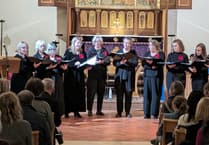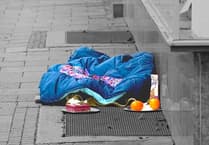Cllr Phoebe Sullivan has warned that the UK’s independent education sector is facing unprecedented disruption following the Labour government’s decision to impose 20 per cent VAT on private school fees.
She said the policy, which came into effect on January 1, has already triggered school closures and major cutbacks, with The Royal School in Haslemere among the latest casualties. But former parent at the school, James Woodgate dismissed this, saying he saw a “mass exodus of teachers” after UL took over the school and questioned whether investment was ever the priority. He had seen the school struggling for years, which was why he moved his children long before Labour came into power.
“Most pupils in my sons’ class moved to other private schools. This isn’t about VAT,” he said.
No matter the reason for the school’s closure, Cllr Sullivan pointed to figures from Rathbones wealth management, which estimate that educating a child at a private day school from age 5 to 18 now costs £461,430 – an increase of nearly £77,000 due to VAT.
She stressed that the impact of school closures is being felt far beyond the school gates. In many areas, she said, independent schools function as major local employers and community hubs. As more schools downsize or shut, Cllr Sullivan argued, local economies are starting to feel the strain.
According to the councillor, teachers, administrative staff, caterers, cleaners and maintenance workers are facing redundancy, while small businesses that rely on school-related footfall – such as cafés, uniform shops and local transport providers – also risk losing vital trade.
Cllr Sullivan noted that many private schools also share their facilities with the community, offering public access to theatres, swimming pools, and sports grounds. The loss of these amenities, she said, could be particularly damaging in rural areas with limited public infrastructure.
She also raised concerns about the knock-on effects on state schools, which are already under pressure. As more families are forced to move their children into the state sector, class sizes could grow rapidly without corresponding investment in staffing and resources. South West Surrey, with its relatively high concentration of independent schools, could be especially hard-hit.
While the government has projected that the VAT will raise £1.8 billion annually by 2029–30 to fund the hiring of 6,500 new state school teachers, Cllr Sullivan questioned whether the short-term damage was worth the long-term gain. She argued the policy unfairly penalises middle-income families who make financial sacrifices to pay for independent education, adding that it risks overwhelming an already stretched public education system.
Labour state the removal of the tax exemption for private schools will help to “rebalance the education system” and ensure all children have access to excellent teaching. The revenue generated, they said, would go directly towards improving standards in state schools and addressing longstanding inequalities in education provision.
Cllr Sullivan is now calling for a reassessment of the policy, warning that without a more balanced approach, local communities – like those in Waverley – will continue to bear the brunt.





Comments
This article has no comments yet. Be the first to leave a comment.